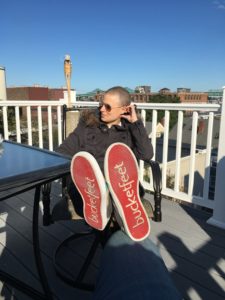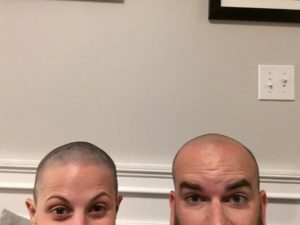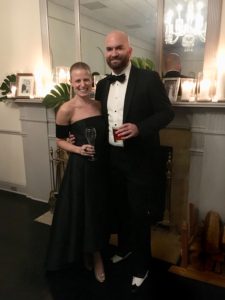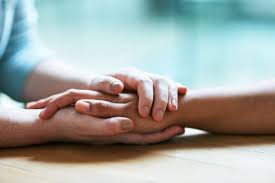Every time I say the phrase “I’m a cancer survivor,” I feel the weight of the whole experience. I feel the pain, the relief, the pride, the anger, the courage, the happiness, and the uncertainty. Just the other day I was giving blood (first time back since my treatment wrapped) and the lovely folks at the American Red Cross were having a tough time finding a good vein. “I’m a cancer survivor, my veins have been through a lot,” I explained. Translation: I’ve been through a lot.
To me, being a cancer survivor means a myriad of things and its meaning has evolved over time for me. At first, it meant that I had been through something that not many others have. It was like going off to battle, and coming back with a limp and terrible memories. I saw things very few have, I felt things I wouldn’t wish on my worst enemy, and I lived through a time of such intense anxiety it was almost paralyzing. I was confronted with my own mortality in a tangible way, and this set me apart from most people in my life.
As you can imagine, this is quite a lot to process. So when I first found out my cancer was gone, I immediately started seeing a therapist to help cope with the stress of the previous year. Because to me, the pain of the whole ordeal almost felt almost more intense after treatment had wrapped. It all came crashing down on me. I felt alone and isolated. I read in a cancer Survivorship book that surviving cancer is like being on a boat in the middle of the ocean with all of your friends and family on shore waiving for you to come in, but you’re unable. That’s exactly what it was to me. We celebrated me becoming a cancer survivor, but my relationship with it was complicated.
One of the challenges with becoming a survivor initially was processing the fact that I had survived when others had not. In fact, the day of my “clean scan party” I found out a woman I had been in treatment with had passed away. She left behind two children and a wonderful husband I had gotten to know in the waiting room of treatment. I remember seeing the information on Facebook earlier in the day and I almost wanted to cancel the party. I felt terrible and guilty for celebrating that I had survived, when she had not. I survived because my body responded to the treatment; I didn’t fight harder than she did. She fought even harder. I just got lucky. This didn’t sit well with me, and motivated me to ensure my cancer Survivorship was put to good use.

Once I had processed all of the complicated feelings I had with being a cancer survivor, I began to heal and come out of the shadows that the disease had cast on my life and my loved ones. I started to view myself as a warrior. A humble one, but a warrior nonetheless. I began to wear my Survivorship like a badge of honor and the most important step for me was starting to reach out to anyone I knew that was battling to offer my support. A very close family friend and a coworker were both diagnosed with breast cancer within a short time and my husband and I offered our support to help get them through.
Now, being a survivor comes with a responsibility to take care of others battling, and to help advance the conversation and medicine so fewer and fewer people have to go through it. It means getting involved with organizations like Cervivor that help women, and to eradicate the stigma of cervical cancer. It means keeping things in perspective, and to have empathy for people around you. Because really, you never know what people are going through on a daily basis. It means not taking life for granted, and for celebrating every birthday like it’s a huge milestone. Gray hairs? Bring them on! I cherish the idea of getting older.
Being a cancer survivor is scary and lonely, but it can be a powerful tool used to help people. My pain has turned into my power and this warrior is ready for anything. It’s Motivation Monday and I am #CervivorStrong!
Read Kate’s Cervivor story here.
 With traumatic stress, the effects are lasting, might not show themselves until long after the event, and are often marked by experiencing the same thoughts, feelings, and body sensations as they did during the event, even though we know we are nowhere near the doctor’s office. This is a hallmark or trauma – your body remembers the event and can activate the same feelings and sensations as if you were there again. In its extreme form, this is a flashback.The most common events during the cancer journey that cause traumatic stress are the diagnosis conversation, the time between that conversation and a treatment plan or starting treatment, and follow up scans. But we know that the cancer journey is fraught with many more daily events, like having to get another needle, realizing that your plans for biological children may be over, losing your hair, figuring out how to explain to employers why you were out of work, medical bills, the onslaught of “well wishes” from others, sharing the news with loved ones, especially children, and many others.
With traumatic stress, the effects are lasting, might not show themselves until long after the event, and are often marked by experiencing the same thoughts, feelings, and body sensations as they did during the event, even though we know we are nowhere near the doctor’s office. This is a hallmark or trauma – your body remembers the event and can activate the same feelings and sensations as if you were there again. In its extreme form, this is a flashback.The most common events during the cancer journey that cause traumatic stress are the diagnosis conversation, the time between that conversation and a treatment plan or starting treatment, and follow up scans. But we know that the cancer journey is fraught with many more daily events, like having to get another needle, realizing that your plans for biological children may be over, losing your hair, figuring out how to explain to employers why you were out of work, medical bills, the onslaught of “well wishes” from others, sharing the news with loved ones, especially children, and many others.